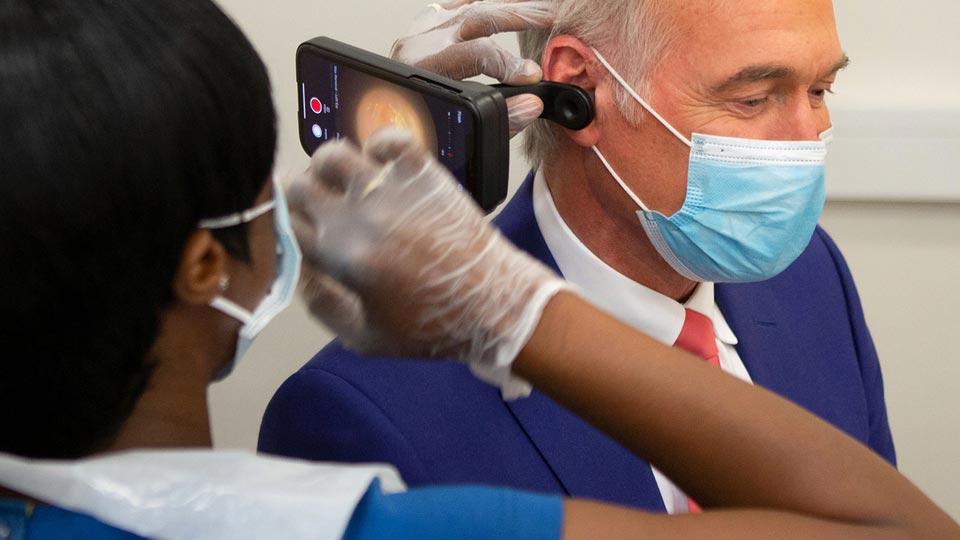Myth or fact? When it comes to our hearing, there’s often a lot of conflicting information out there.
So we sat down with GP and Medical Broadcaster Dr Hilary Jones, MBE, to cut through the noise and separate fact from fiction.
“Many of us are guilty of taking our health for granted, and for common conditions like hearing loss we may think we know all there is to know,” he says. “In the world of infinite information, making sure you have the latest health advice is paramount.”
“Here I’ve answered some of the most common hearing health myths… and debunked some,” he says.
Hearing loss is a symptom of COVID-19!
True – although it’s rare! Research from the University of Manchester has identified a link between COVID-19 and hearing loss. If you’re experiencing upper respiratory symptoms, you might experience pressure on the ears, or infections. These infections can cause hearing loss. However, the majority of people with COVID-19 will not experience this unusual symptom. Therefore, if you’re struggling to hear lately, COVID-19 probably isn’t the reason – and I would advise you see a hearing care professional.
Ear wax is a sign of poor hygiene!
Myth! Whilst ear wax may feel – or look – unpleasant, a healthy level of ear wax is in fact very positive. Ear wax is there to protect the inner ear, and trap dirt, bacteria, and germs.
However, excess ear wax may cause a level of discomfort, and in more extreme cases, tinnitus. It can be tempting to then remove wax with a cotton bud, finger, or other object…but this is more likely to cause the wax to further impact, bursting your eardrum, or even lead to an infection or inflammation in the ear canal!
If you’re unsure, the best thing you can do is to ask a professional to assess and remove any excess wax build-up for you. You can book an earwax removal appointment here.
You’re more likely to lose your hearing if you live in a city
Bad news for city-dwellers, but this is true! A study by the Lancet showed that living in a noisy city increases your risk of hearing damage by 64%1. That’s because you’re more likely to be exposed to loud noises. This can come in the form of construction sites, noise at work, nightclubs, and so on – even a loud train or tube on your daily commute might be hurting your hearing health unbeknownst to you.
Hearing loss is a normal part of getting older
True(ish)! One of the most common forms of hearing loss people experience is due to age, and its associated changes to the inner ear. It’s therefore crucial to know how well you hear and to have regular hearing tests from the age of 55. In fact, I’d encourage you to treat it in much the same way you would your eyesight prescription, and build it into a regular routine.
You’ll know if you lose your hearing
Myth! It often happens gradually. According to the Royal National Institute for Deaf People (RNID), most people with a hearing loss report that the first people who noticed was actually their family. And it takes an average of ten years to seek help. If you’re turning up the TV regularly, this might suggest it’s time to test your hearing – and I assure you that your neighbours will also thank you for it later!
**
So there you have it. If you’ve found yourself asking any of these questions before, it might be time to book a free hearing test at one of our clinics. Or you can try our online hearing test. It’s free and will only take you about five minutes. Or if you’re worried about the effect that excess wax is having on your hearing, you can always book an ear wax removal appointment.
Source:
1- “Hearing loss: a global health issue”, The Lancet, Volume 385, Issue 9972, 14–20 March 2015, Pages 943-944

